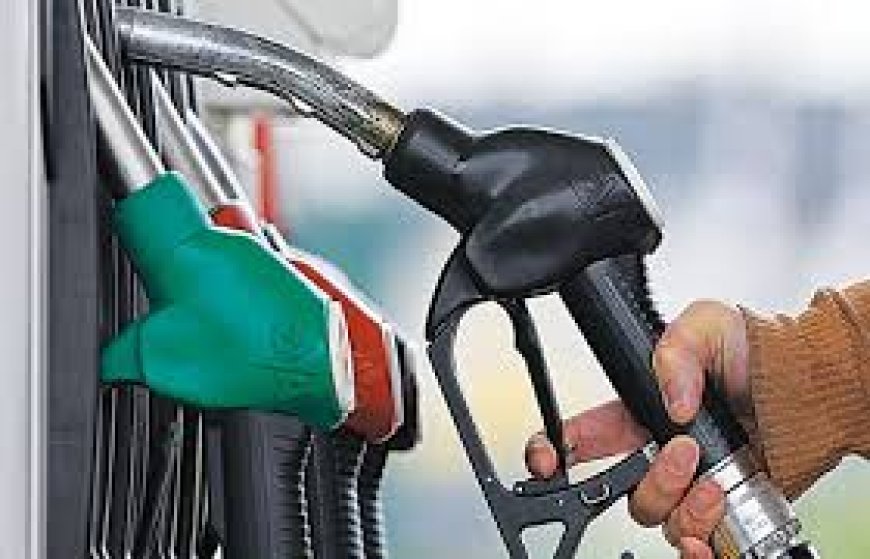Govt Likely to Increase Petrol, Diesel Prices Again
Government expected to raise petrol by ~Rs6.60 and diesel by ~Rs5.27 per litre from July 16 amid global oil and rupee pressures.

Pakistanis may once again have to brace for a fuel price hike, as the federal government is expected to announce another increase in petrol and diesel rates during its scheduled fortnightly price review on July 15, 2025.
If approved, the new prices will come into effect on July 16, marking the continuation of a trend that has already placed heavy financial strain on households and businesses across the country.
Expected Price Hike: Petrol and Diesel Rates
According to estimates by Arif Habib Limited (AHL), one of Pakistan’s leading brokerage and research firms:
-
The price of Motor Spirit (MS/Petrol) is likely to increase by Rs. 3 per liter, reaching Rs. 269.80 per liter.
-
The price of High-Speed Diesel (HSD) may see a smaller adjustment of Rs. 0.78 per liter, pushing it to approximately Rs. 273.80 per liter.
This anticipated hike follows the previous price revision, where the government had raised petrol by Rs. 4.80 and diesel by Rs. 7.95 per liter, sending fuel rates to multi-month highs.
Reasons Behind the Fuel Price Increase
Experts attribute the upcoming hike to several key factors:
1. Rising International Oil Prices
Global crude oil prices have witnessed steady upward momentum over the past month. The international premium on petrol imports has surged, forcing Pakistan to adjust local rates to keep up with market trends.
2. Exchange Rate Volatility
Fluctuations in the Pakistani rupee against the US dollar have further amplified the cost of fuel imports. Since Pakistan imports a large share of its petroleum products, even small shifts in currency exchange rates directly impact domestic fuel pricing.
3. Inflationary Pressure
The combined effect of higher global prices and exchange rate instability translates into increased transportation and manufacturing costs, pushing inflation higher across sectors like food, logistics, and retail.
Impact on Economy and Daily Life
Fuel price hikes have a cascading impact on Pakistan’s economy, touching nearly every citizen in some way.
-
Transport Costs: Higher petrol and diesel prices mean more expensive public transport fares and higher ride-hailing service charges.
-
Goods Delivery: The cost of moving essential goods, including food and agricultural produce, rises, leading to higher market prices.
-
Inflation: With petroleum products being a major cost component in manufacturing, logistics, and energy, inflation is expected to remain elevated.
-
Household Budgets: Families already burdened with electricity tariff hikes and food inflation will face additional financial stress.
Economists warn that if the trend continues, it could erode consumer purchasing power and reduce economic activity, particularly for middle- and lower-income households.
Previous Hikes and Public Reaction
In the last fortnightly review, announced at the end of June 2025, the government had already increased fuel prices sharply:
-
Petrol by Rs. 4.80 per liter
-
Diesel by Rs. 7.95 per liter
The decision drew criticism from transport associations, traders, and ordinary citizens, many of whom argued that the frequent increases are making survival harder amid stagnant wages and slow job growth.
Public frustration has also been amplified by the perception that government subsidies and relief programs have not kept pace with the rising cost of living.
Government’s Position and Approval Process
The final fuel pricing decision rests with the Ministry of Finance and the Prime Minister’s Office. Officials will review a pricing summary prepared in consultation with the Oil and Gas Regulatory Authority (OGRA) before making a formal announcement.
While authorities insist that adjustments are necessary to align domestic prices with international markets, critics argue that better fiscal management and long-term energy reforms are needed to shield citizens from repeated shocks.
Broader Implications: Inflation and IMF Commitments
Pakistan’s commitment to the International Monetary Fund (IMF) program is also a factor in its fuel pricing policy. The IMF has emphasized the need for cost-reflective pricing, meaning the government cannot heavily subsidize fuel without disrupting fiscal targets.
As a result, every fortnightly increase not only raises inflationary concerns but also sparks a broader debate about energy reforms, taxation, and subsidies.
Conclusion: Another Burden on the Public
If the proposed hike is approved, petrol prices will climb to Rs. 269.80 per liter and diesel to Rs. 273.80 per liter from July 16, 2025. For a country already grappling with high inflation, debt repayments, and slowing economic growth, the hike represents yet another burden on businesses and households.
The coming weeks will reveal whether this adjustment sparks fresh protests, political pushback, or calls for relief measures. For now, the government’s stance remains clear: fuel price revisions will continue in line with global market trends and fiscal requirements.

 Israr Ahmed
Israr Ahmed